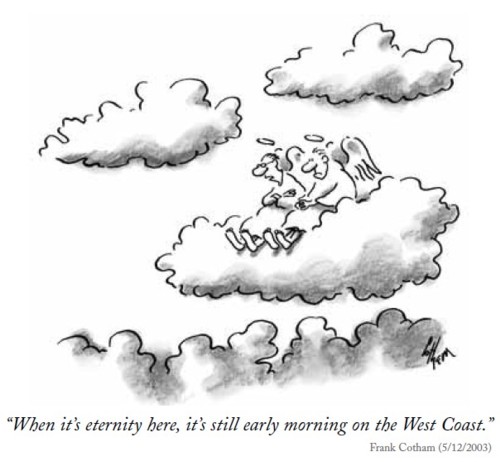The problem of time
A little over two centuries ago most informed people believed that the world was no older than six thousand years. As great an authority as Sir Isaac Newton suggested that the world was created 4000 BC, and Johannes Kepler, 3992 BC. Many biblical scholars, using clues in Genesis and Revelations, proposed that the creation date was 4000 BC and the earth would end in 2000 AD.
But by the time of the great Huxley - Wilberforce debate on evolution in 1880, a number of natural philosophers had begun to question these dates, due to an accumulation of contradictory evidence. This evidence included: obviously very old, folded geological strata that was clearly sedimentary in nature and must originally have been laid down horizontally; the discovery of fossils of animals no longer extant, in sedimentary deposits and even deep in limestone caves; the discovery, in due course, of radioactive decay that provided a means of dating rocks and fossils; the discoveries in astronomy that showed that the universe is enormously large, old and is continuously expanding; and discoveries in biology suggesting that animals must evolve over vast periods of time.
We now estimate the universe to be 13.8 billion years old but believe this nevertheless to be quite young, at the beginning of its life. We estimate the sun is about 4.6 billion years old and the earth about 4 billion years. The fossil record shows that there has been life in some form on the earth for over half of this time but complex animals, consisting of a large number of cells cooperating and specializing to create a single being, are relatively recent. The large dinosaurs were very recent in universal time and lived from around 260 to 65 million years ago, after which mammals began to predominate. In the whole period since the dinosaurs disappeared, the sun has completed less than one orbit of our galaxy (less than one galactic year). Humans in our present form have been around infinitesimally less time, for less than 250,000 years. It is likely that all humans on earth are the decedents of a small tribe that lived in Africa about 75,000 years ago. If you took a meter rule to represent the universal time line ‘til now, human existence would be less than a hair width at the end.
It is extremely unlikely that humans in our present form will exist in another 250,000 years; we will have either evolved or died out. Even if this does not happen, astronomers agree that early in the life of the universe, in around another 5 billion years, our sun will run out of energy and long before this the earth will become uninhabitable, losing its atmosphere as the sun becomes larger and hotter.
Just as, individually, our lives are short; so we can be sure that the existence of the human species or even that of our planet is a fleeting moment in the life of the universe; like to a camera flash in a darkened football stadium during a yearlong game.
But several religions suggest that after death we each go on, in some mysterious way, for eternity - outlasting our species; life on the planet; and even the planet itself.

There are at least two theological views of Eternity. One is in the sort of time we are familiar with, in which one event follows another, people age and living things, like cells, are created and decay and die. Things change, thus defining the passage of time.
In this kind of time God has been there before the beginning and will be there after the end. In one variation, this is resolved by making God's time circular, like a snake eating its tail.
The scale of this Eternity is encompassed by a god or gods and thus is longer than the life of the universe. Suppose this is a hundred billion Earth years and we call this a cosmic year. Then the entire human existence, from our arrival as a species to our inevitable disappearance, very optimistically in maybe a million Earth years, will last a small fraction of a cosmic second.
Obviously, individual humans are many orders of magnitude less significant than our entire species. A theoretical Eternal God doesn't feel very caring or sharing.
It seems to me that in this context, the idea of an immortal, exclusively human soul handed out by the creator of the universe to each foetus at conception is exceptionally bizarre.
But there is another more esoteric Eternity. Some theologians assert that for God there is no time, just a single instant in the present that encompasses all human time and cosmic time.
Plato seemed to hint at eternity in his theory of Ideals. In the Ideal world nothing changes so time has no relevance. Einstein's space-time-continuum, that explains gravity, suggests that a time dimension already exists in some way, although the word 'already' is confusing in that context.
Timeless Eternity neatly gets around the problem of a 'first cause', because it's meaningless to ask where this hypothetical Eternal God came from or is going. For Eternal God everything just is - simultaneously.
Nice as Timeless Eternity may be as a philosophical or theological theory, human life is very different. We have a past, present and future and it's impossible to imagine action, and therefore biological life (or sin or good works or love), in any other context.
Life and timeless eternity don't mix.

Heaven without time is no heaven.
One thing is certain, I have no interest in going to such an eternity, lasting thousands of billions of years or without dimension at all, even if I thought such a thing was an option.
